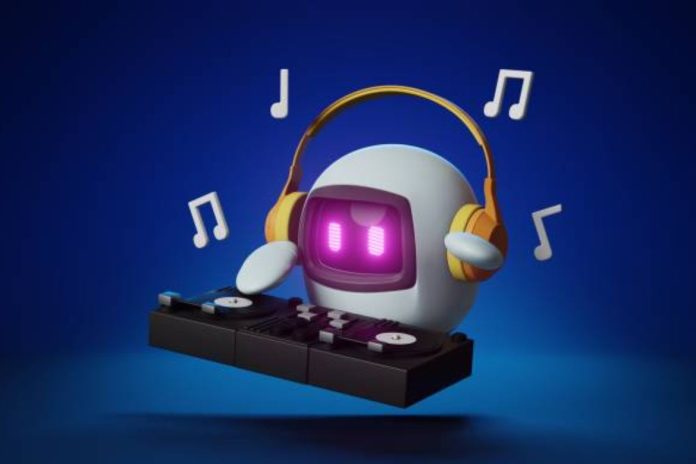The music industry has always been at the forefront of technological innovation, and the rise of AI music generators is the latest game-changing development. These powerful tools are transforming the way music is created, produced, and consumed. AI-driven platforms are reshaping the roles of musicians, producers, and listeners alike. In this article, we’ll explore how AI music generators are revolutionizing the industry and the potential they hold for the future of music.
The Emergence of AI in Music Creation
Artificial intelligence has been steadily making its way into the creative world, and music is no exception. AI Music Generator is designed to create original compositions using machine learning algorithms. These tools are trained on vast databases of existing music, learning patterns, structures, and harmonies that make up different genres. As a result, they can produce music that closely mimics human composition, often with surprising sophistication.
AI music generators can create compositions from scratch or assist musicians in their creative process. With just a few prompts or input from the user, these tools can generate a range of musical styles, from classical to contemporary, and everything in between. Whether it’s creating background music for videos, generating jingles for advertisements, or composing full-fledged songs, AI is becoming an indispensable tool for musicians and producers.
Redefining the Role of Musicians and Producers
AI music generators are not here to replace musicians; instead, they’re changing the way they work. By automating certain aspects of the composition and production process, AI allows musicians to focus on their unique artistic expression. For example, musicians can use AI to quickly generate instrumental tracks, chord progressions, or melodies that serve as the foundation for their own creative work.
Producers, too, benefit from the capabilities of AI music generators. These tools can assist in mixing and mastering by suggesting adjustments to sound levels, EQ settings, and effects, improving the overall quality of the music. Furthermore, AI can help speed up the time-consuming aspects of music production, enabling producers to work more efficiently and experiment with new ideas.
Democratizing Music Production
One of the most exciting aspects of AI music generators is their ability to democratize music production. In the past, creating high-quality music often required expensive equipment, extensive training, and a team of experts. However, AI tools have lowered the barrier to entry for aspiring musicians and producers. Now, anyone with a computer or smartphone can experiment with creating music, regardless of their skill level or financial resources.
These tools are opening up new opportunities for independent artists, allowing them to produce professional-quality music without the need for a recording studio or a full band. With AI-powered platforms, creators can compose, arrange, and produce their own tracks from the comfort of their homes. As a result, we’re seeing an explosion of new talent and diversity in the music industry, as AI enables more people to share their musical creations with the world.
Enhancing Personalization and Listener Experience
AI music generators are also changing the way we consume music. By analyzing user preferences and behavior, AI tools can create personalized playlists and recommendations tailored to each listener’s unique taste. This level of personalization has become a hallmark of streaming platforms like Spotify, Apple Music, and YouTube, which rely on AI algorithms to suggest songs and artists based on past listening habits.
Moreover, AI can be used to generate adaptive soundtracks for video games, virtual reality experiences, and interactive media. These soundtracks can change in real-time based on the user’s actions or the environment within the game, providing a dynamic and immersive auditory experience. This is a prime example of how AI is not only revolutionizing music creation but also enhancing the way music interacts with other forms of entertainment.
Ethical Considerations and Challenges
As AI music generators become more advanced, they raise important ethical questions. One concern is the ownership of AI-generated music. Since the creation of the music is driven by an algorithm and not a human composer, it can be difficult to determine who owns the rights to the music. Is it the company that developed the AI, the user who prompted the AI, or the AI itself?
Another challenge is the potential for AI-generated music to flood the market, leading to oversaturation and reduced demand for human-created music. While AI music generators can produce music at an impressive rate, it may also lead to concerns about the uniqueness and authenticity of music. Musicians and producers will need to find ways to maintain their creative edge and differentiate themselves in a world increasingly populated by AI-generated content.
The Future of AI in Music
The potential for AI music generators is vast. In the future, we can expect to see even more advanced algorithms capable of creating music that is indistinguishable from compositions made by human musicians. As AI continues to evolve, it may even become a collaborative tool where human musicians work alongside AI to create entirely new genres and sounds.
In the coming years, AI could also play a significant role in live music performances. Imagine an AI system that can analyze an audience’s mood and adjust the music in real time to match the energy of the crowd. AI could help create fully interactive concert experiences, allowing performers to engage with their audiences in innovative ways.
Conclusion
AI music generators are revolutionizing the music industry by streamlining the creation and production process, democratizing access to music-making tools, and offering new opportunities for personalization and innovation. As AI continues to evolve, it will undoubtedly shape the future of music, opening up new possibilities for artists and audiences alike. While there are challenges to navigate, including ethical considerations and the preservation of human creativity, the rise of AI in music promises an exciting and dynamic future for the industry.








